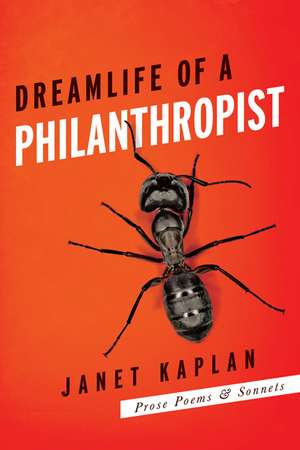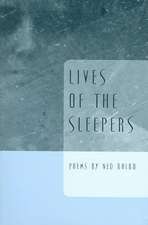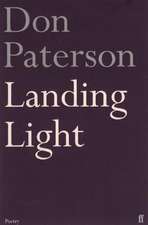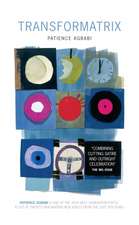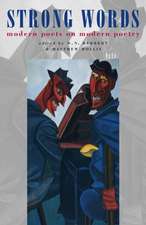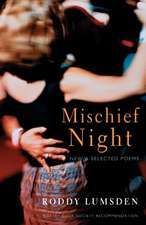Dreamlife of a Philanthropist: Ernest Sandeen Prize in Poetry
Autor Janet Kaplanen Limba Engleză Paperback – 14 feb 2011
With a salve in one hand and a burcher's knife in the other, Janet Kaplan offers her masterful third collection, Dreamlife of a Philanthropist, winner of the 2011 Ernest Sandeen prize in Poetry. The prose poems and sonnets in Dreamlife are packed with postmodern language-leaping, modern irony and absurdity, and a poet's ageless ear for the pleasures of the lyric and formal experimentation. These are poems that can never quite abandon the hope that life--and language--are worthy pursuits; but they never offer up easy assurances about the benefits of humanity to anyone or anything. Get ready for dogs that wail and overtake the scene; an invitation to make love on a matress of ants; and the philanthropist of the title, who dreams that people are tuned into fish. It's "good luck and bad in random but equal measure," Kaplan writes in "Life and Times."
"In Janet Kaplan's work, the elements of thought--language, shifting self, recurrence, movement--combine into powerful compounds, compounds into machines whose primary purpose is to give shape and music to the void. These machines amaze the world to life, and Kaplan's reader may feel, as I do, lucky to be there at the inception." --Brian Clements
"Imagination reaches over to kiss reality on the neck in these poems. God and the universe have walk-on parts, as do symmetry, prescription drugs, children, mothers, fathers . . . all in the context of a vibrant animal world placed in the shifting sands of language, with the excitement of a threatened slide into chaos lurking beneath every lovely lyric turn." --Maria Melendez
" 'The mind's no place for a life,' writes Janet Kaplan, nudging reason off the stool where it had sat so preciously balanced. Some poems seek to re-wire the mechanism of their own creation; and here, in poems whose wit cannot be told apart from their momentum, we find thinking at work against itself, undoing conclusion, battling intent, in order to recover some lost ground of form's unconscious foundation. The ambition is high, though humble as you read it. Kaplan is capable of cosmogonic play and radical domesticity (as if one were different from the other). The poems here hover above their own titles, this dream-life of the poem more important than the poem itself, a place in which thinking is not yet thought, intent not yet conclusive, not language even as a form of life, but language in the process of making that life possible. It isn't a mental life; it is too real for that easy confine. Let's just call it the necessary life--a life of serious play." --Dan Beachy-Quick
"Composed of (often comestible) daily objects made strange, Dreamlife of a Philanthropist bears echoes of ekphrasis and takes its cue from both the linguistically excitable and fabular lineages of the prose poem. Here we find ourselves face-to-face with "Organic bomber planes, zucchini flowers, captions. All of it blurry, a Seurat that never comes clear, no matter how far in the future one stands." Kaplan challenges the prose poem form by dividing many of her pieces into 14 numbered sections--an unrhymed sonnet riff--or by writing into her titles, ending, rather than beginning, with the thrust of naming. As such, Dreamlife employs the poem-as-object while slyly evading its containment. And the voice here charms, leading us into a landscape of Tender Buttons meets Claes Oldenberg or Rene Magritte. We have seen this world before, but this book calls for an experience of new proportions." --Karla Kelsey
"In Janet Kaplan's work, the elements of thought--language, shifting self, recurrence, movement--combine into powerful compounds, compounds into machines whose primary purpose is to give shape and music to the void. These machines amaze the world to life, and Kaplan's reader may feel, as I do, lucky to be there at the inception." --Brian Clements
"Imagination reaches over to kiss reality on the neck in these poems. God and the universe have walk-on parts, as do symmetry, prescription drugs, children, mothers, fathers . . . all in the context of a vibrant animal world placed in the shifting sands of language, with the excitement of a threatened slide into chaos lurking beneath every lovely lyric turn." --Maria Melendez
" 'The mind's no place for a life,' writes Janet Kaplan, nudging reason off the stool where it had sat so preciously balanced. Some poems seek to re-wire the mechanism of their own creation; and here, in poems whose wit cannot be told apart from their momentum, we find thinking at work against itself, undoing conclusion, battling intent, in order to recover some lost ground of form's unconscious foundation. The ambition is high, though humble as you read it. Kaplan is capable of cosmogonic play and radical domesticity (as if one were different from the other). The poems here hover above their own titles, this dream-life of the poem more important than the poem itself, a place in which thinking is not yet thought, intent not yet conclusive, not language even as a form of life, but language in the process of making that life possible. It isn't a mental life; it is too real for that easy confine. Let's just call it the necessary life--a life of serious play." --Dan Beachy-Quick
"Composed of (often comestible) daily objects made strange, Dreamlife of a Philanthropist bears echoes of ekphrasis and takes its cue from both the linguistically excitable and fabular lineages of the prose poem. Here we find ourselves face-to-face with "Organic bomber planes, zucchini flowers, captions. All of it blurry, a Seurat that never comes clear, no matter how far in the future one stands." Kaplan challenges the prose poem form by dividing many of her pieces into 14 numbered sections--an unrhymed sonnet riff--or by writing into her titles, ending, rather than beginning, with the thrust of naming. As such, Dreamlife employs the poem-as-object while slyly evading its containment. And the voice here charms, leading us into a landscape of Tender Buttons meets Claes Oldenberg or Rene Magritte. We have seen this world before, but this book calls for an experience of new proportions." --Karla Kelsey
Preț: 125.13 lei
Nou
Puncte Express: 188
Preț estimativ în valută:
23.95€ • 24.97$ • 19.90£
23.95€ • 24.97$ • 19.90£
Carte tipărită la comandă
Livrare economică 21 martie-04 aprilie
Preluare comenzi: 021 569.72.76
Specificații
ISBN-13: 9780268033224
ISBN-10: 0268033226
Pagini: 72
Dimensiuni: 152 x 229 x 4 mm
Greutate: 0.13 kg
Ediția:1st Edition
Editura: MR – University of Notre Dame Press
Seria Ernest Sandeen Prize in Poetry
ISBN-10: 0268033226
Pagini: 72
Dimensiuni: 152 x 229 x 4 mm
Greutate: 0.13 kg
Ediția:1st Edition
Editura: MR – University of Notre Dame Press
Seria Ernest Sandeen Prize in Poetry
Notă biografică
Janet Kaplan is the author of two previous poetry collections, The Groundnote and The Glazier's Country, and her poems have appeared in numerous journals and anthologies, online and in print. She is the recipient of the Poets Out Loud Prize from Fordham University Press, the Alice James Books New England and New York prize, and grants from the New York Foundation for the Arts, the Vogelstein Foundation, and Rattapallax Press (The Godot Grant in Poetry). She teaches at Hofstra University and Fordham University, where she is currently Poet in Residence.
